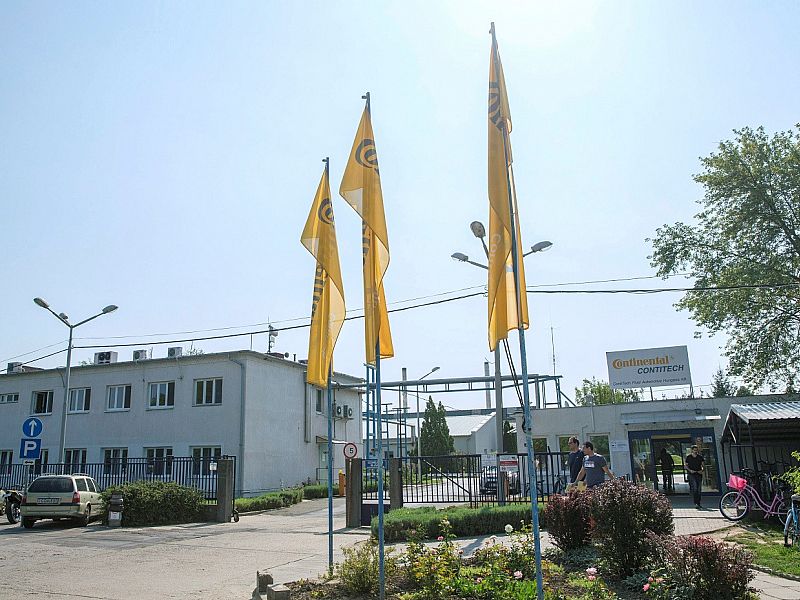Hungarian automotive industry: week 9 2021

Fotó: MTI
Continental settle dispute with unions by temporarily restoring collective agreement. Vitesco Technologies launch production at new plant in Debrecen, other automotive suppliers announce major investment projects. Let’s recap what last week brought in Hungary’s automotive sector. Clicking on the highlighted items will open the full stories.
Continental’s Makó plant (pictured) has settled its dispute with unions by temporarily restoring the collective agreement it had previously unilaterally terminated due to the latest Covid19 restrictions.
The new plant built by Vitesco Technologies in Debrecen has officially entered into operation. The facility will create a total of 450 jobs until reaching full operation.
Towbars manufacturer ACPS Automotive Kft. will expand their production capacities with a HUF 800 million investment.
Trailer parts manufacturer Autóflex-Knott Kft. have announced to modernize their Kecskemét-based production unit with a HUF 500 million investment and establish production capacities in the United States.
Kistelek-based Indupro, a metalworker for automotive supply, have announced to modernize their equipment park with a HUF 600 million investment.
Knorr-Bremse Budapest have developed highly-automated assembly lines in cooperation with suppliers and the Budapest University of Technology and Economics.
Volkswagen have presented a new strategy in which the car maker will expand their portfolio with at least one new battery-powered electric model every year until 2030, and vow to make autonomous driving an accessible feature within the current decade.
Industrial conglomerate thyssenkrupp, recently making headlines by hinting on the potential sale of certain businesses, are establishing a new division for the manufacturing of body parts.
In February, the import volume of used cars shrank by one-fifth in Hungary compared to the same period last year.
According to the latest statistics by GKI Zrt., the average age of Hungary’s car fleet grew by three years between 2010 and 2019.
Hungarian public road operator Magyar Közút Nonprofit Zrt. and e-Mobi Nonprofit Kft. will work together to first identify locations adequate for electric charging stations and then execute construction and installation.
Advocacy groups for vehicle manufacturers and other steel-dependent industries have requested the European Union to abolish its customs duties on steel, as they have led to serious excess demand on the continent.




















